Overview: Blockchain, Crypto, NFTs etc
A long overdue overview, just getting started. Stimulus: the idea of managing the MyHub data union and associated services using a DAO and utility token. Currently I'm curating a few articles every day, then summarising the most interesting ones here every week (cf progressive summarisation).
Related ideas not in this Overview: decentralised, p2p.
Best primers
Bitcoin/Blockchain
How to explain Bitcoin to your grandmother :
- banks are simply "intermediaries that 'keep score' of e-money" by maintaining a time-stamped ledger.
- "we have to trust in the banking system in order to trust in the money." Bitcoin is a decentralised intermediary that we don't have to trust: people can't copy/paste bitcoin.
- Everyone has a Public Key, linked to bitcoins. To send someone bitcoins, I broadcast to the Bitcoin network: "I am Public Key M; I wish to transfer X Bitcoin to Public Key N. Please check and record it on the ledger",
- that ledger is "the Blockchain... a computer file that gets constantly updated, and it is held on the computers of everyone in the Bitcoin network... built and maintained by ... Miners", who (competitively) earn bitcoins in return for validating and recording transactions. So Bitcoin is "a currency that grows in the process of people trying to maintain its integrity".
- Recording to the blockchain "makes the transaction real... coins [exist] in the historical record of the blockchain... a collaboratively-built knowledge bank ... All I have on my computer is a public key which says that I am the rightful owner to a part of that history" - so dont lose access to your Key!
DAOs
" a new kind of leaderless crypto-club... group chats with bank accounts... Web3 kids trying to tear down the old social hierarchy, only to replace it with a new, tokenized one where they were on top" - Crypto Is Cool. Now Get on the Yacht
Ethereum is a platform and a programming language ... to build and publish next-generation distributed applications.... Ethereum can be used to codify, decentralize, secure and trade just about anything... Ethereum borrows the concept of decentralized consensus that makes bitcoin so resilient, yet makes it trivial to build on its foundation
- Introducing ethereum
Based on charters taking the form of code on a peer-to-peer network, these are entities that could automate many of the tasks of a conventional organization with varying levels of human input.
- Code your own utopia: Meet Ethereum, bitcoin’s most ambitious successor
remove management from the equation ... encode the mission statement into code... an inviolable contract that generates revenue, pays people to perform some function, and finds hardware for itself to run on
- Bootstrapping A Decentralized Autonomous Corporation: Part I
"there’s no shortage of startups, projects, and developers trying to apply the blockchain concept to everything... because it gives the tech industry another bite at a long-coveted apple: decentralization."
- Can an Arcane Crypto Ledger Replace Uber, Spotify and AirBnB?
Identity
Blockchain + private key cryptography allow for “self-sovereignly”: full possession of digital assets without having to trust a third party. Wallets can be multi-signature: have as owners multiple keys (incl. other wallets), & require multiple key signatures to confirm a transaction. They allow cooperatives to hold resources in common, and liquid democracy (through delegation). Multi-sig accounts = operating system for DAOs, presuppose groups or identity collections as their primary unit -> composable identity. Web 3.0 accounts will underpin #metaverse interoperability: provide wallets, identity, login functions and in-game inventories (holding assets, including identities), complete with cross-platform narratives & reputations. Inventories can be cooperatively shared - Inventories, Not Identities
AI/DAOs
blockchains encourage data sharing among traditional silos, if there is enough up-front benefit ... AI with blockchains unlock the possibility for AI DAOs - an AI that owns itself... can accumulate wealth, that you can’t shut off... an AGI-style control system running on a decentralized processing & storage substrate. Its feedback loop continues on its own, taking inputs, updating its state, actuating outputs, with the resources to do so continually... AI gets its missing link: resources. DAO gets its missing link: autonomous decision-making.
- Blockchains for Artificial Intelligence
NFTs
"Scarcity — the quality that gives offline art its value — was hard to replicate online. An NFT is a digital collectible item stamped with a unique bit of code that serves as a permanent record of its authenticity and is stored on a blockchain... can be bought and sold ... can’t be deleted or counterfeited. That makes it useful for artists... to create limited edition digital goods... Creators can even attach a royalty agreement to their NFTs, entitling them to a cut of the profits every time their assets are resold".
- Buy This Column on the Blockchain!
Longer history: The Untold Story of the NFT Boom
Application examples
Media/journalism/publishing/art
Media: early resources - some quotes:
Brave, the blockchain-based browser initiative that raised $35 million in an ICO earlier this year, is making its first major move to build an ecosystem that rewards publishers in a new kind of way.
- Blockchain browser Brave makes push to reward content makers
Po.et is a shared, open-source universal ledger designed to track ownership, attribution and the marketplace flow of the world’s creative assets
- The Next Platform for Media and Makers (seems dead)
A new report ... concludes that “protecting the future of speech online involves ... experiments in decentralization... an ecosystem of competing publishing platforms, diverse in governance strategies, interoperable and connected by a diversity of federated clients.”
- Platforms wield a worrying amount of power over news and information. Can a more decentralized web help?
Civil:
An ecosystem of micropayments... the holy grail for online journalism... Blockchain technology can create both chains of authenticity and a level of security... a new blockchain-based platform called Civil... cryptocurrency token... tempt readers to invest directly in the journalism being done by ... newsrooms under their umbrella... Token holders will be able to vote on or challenge proposals, making the platform effectively a... community of active stakeholders participating in decisions.
- What Could Blockchain Do for Journalism?
an ad-free publishing economy on Civil’s Ethereum-based platform... accountable to its readers ... impervious to the interests and agendas of advertisers or other intermediaries or “influencers” ... Readers, and readers alone, provide our community, our platform, and the funding ... Commenters can earn tips on the Civil platform, so there will be a point to being smart and careful about what you write... Imagine adding information to a news story you’re interested in, and not just getting thumbs up or ‘likes’ for it, but getting paid for it
- Why does journalism need blockchain technology?
Art:
The same arguments regarding scarcity and digital that apply to media, above, also apply to digital art, with artists getting a share of resale, creating a perpetual revenue stream for successful artists and their descendants. But artists push things further than turning a newspaper column into a NFT: "The Fingerprints DAO collection is composed of NFTs that revolutionized the use of smart contracts as art" - including art which is created algorithmically, using the minting tmestamp among other datapoints as an input, and which can evolve over time.
Interesting #defi play by investors who bought 20 of beeple's "Everyday" NFT pieces for $2.2m, built virtual 3D museum galleries to display them, created 10 million B20 tokens, each representing a fractional ownership of the nfts: 10% went to the museum artists, 2% to Beeple, they kept 50% and put some up for sale. B2O peaked at $27m.
Games
OP Arcadeis a HTML5 game platform, with tournament competitions, to which game developers contribute games which are transformed into fractionalized NFTs. Buyers collect them to co-own games. Players can play for free (?) - via the DAO, "game owners make proposals, vote for game updates, fund additional development". Overall, a community: "players, game owners and developers working together to shape the future of their collectively owned games."
Social media / Fediverse
The model proposed in Protocols, Not Platforms: A Technological Approach to Free Speech (Nov. 2020) puts content moderation at the network edge, not the platform-owned centre. This edge could be the servers running the protocol according to rules the server owners' set up (classical fediverse model); the users themselves (fiddling with client preferences), and/or third parties, where users "subscribe to moderation filters or even add-on services ... let a million content moderation systems approach the same ... content—each taking an entirely different approach—and see which ones work best " (cf the "market of competing indicators" in We need a credibility indicator marketplace to fight disinformation, May 2018).
As for user dataprivacy: "just as the filtering decisions could move to the end users would simply build their own “data stores” [and] "offer up their data in exchange for access or deals" - cf Solid. And now add in cryptocurrency-based equity: the more you use, the greater your share of "the value of the overall network... As more people use the protocol [it] increases in value... an organization in charge of the protocol retains some percentage of the currency while distributing the rest".
Blockchains and tokens provide two crucial puzzle pieces for .. the decentralized internet... Blockchains ... allow many different people to ... agree upon information without having to trust each other... Tokens, meanwhile, enable incentives across national and company lines... to create private economies around open platforms...
- Centralized vs Decentralized — The Internet of the Past, Present and Future
Politics/Society
Crypto-anarchists are mostly computer-hacking, anti-state libertarians ... believe that digital technology, provided citizens are able to use encryption themselves, is the route to a stateless paradise... build software – think of it as political computer code – that can protect us online... Most of us chase their latest shiny toys and have no real understanding of what we’re doing... an entire nation could one day be provided online via an uncontrollable, uncensorable digital network, where groups of citizens could club together to privately commission public services.
- Forget far-right populism – crypto-anarchists are the new masters
Industry & services
each ride becomes cheaper if the vehicles are autonomous rather than owned and run by major corporations... We can program it to ... make it the most moral, socially minded capitalist possible...it would not be self-aware... But they would be programmed to seek self-improvement in order to avoid becoming obsolete... hire human programmers to tweak their code... cars could club together with any surplus earnings they had to pay factories to build more of them... the new car would compete ... but would begin by giving a proportion of its profits to its parents."
-Could driverless cars own themselves?
Finance: DeFi
Decentralised Finance: DeFi.
Ohm is a crypto reserve currency. Owners set policy via the OlympusDao. Ohm tokens are backed by a treasury of other cyrptocurrencies. The DAO mints & sells more to increase supply if the value of ohm rises above the treasury value, and buys back and burns Ohm if its value drops. Hence a stable floating value which never dips below the value of the backed assets in the treasury. It also buys bonds for its treasury in return for ohm at a discounted price.
Tools and platforms
Urbit looks like a fascinating platform to build myhub on: “an open-source decentralized internet project... at its most basic level, an Urbit is a super-private (virtual) computer, combined with an ID, which is connected peer-to-peer with other Urbit computers
- urbit.org/blog/urbit-for-normies.
Relevant resources

regulation needn’t be such a compliance burden... an opportunity - how can we sustain a sophisticated and modern regulatory system, and at the same time manage complexity for end users?... re-imagining regulation as an open platform, based on digital logic... supports a future ecosystem of digital regulation tools and services... working with gov…

big data has transformed AI, to an almost unreasonable level. Blockchain technology could transform AI too... Some applications ... mundane... Some appear almost unreasonable, like AI that can own itself ... This article will explore these applications... blockchains introduced three new characteristics: decentralized / shared control, immutable …
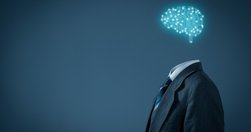
Q Data is a marketplace for selling and buying raw and aggregate data, and Tasko offers on-demand data collection... Many enterprises have plenty of data but don’t know how ... Latent value lurks everywhere... many startups know how to turn data into value using AI, but they’re starving for data.... Blockchain... will allow figuring out who orig…

an ecosystem that rewards publishers in a new kind of way... to disrupt the current financial norms of online publishing... reward users for browsing the web... make advertising less intrusive and more relevant... let readers ... ‘tip’ websites that they visit based on time spent on the site.
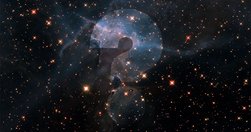
new crypto-economy for fearless, independent journalism that will empower action for change... the absolute dysfunction of the global information architecture — represented in the intersection of mainstream media outlets, social technology platforms and giant digital aggregators — that is sowing confusion, and paralyzing us... the global media in…
the hashgraph consensus algorithm... much more cost-effective ... 50,000 times the speed, safer ... more efficient ... mathematically fairer than the blockchain.... the future of the internet and decentralized technology.
platforms like Facebook have ... amassed unprecedented gatekeeping powers ... Can new decentralized systems with no single point of control... be a remedy? A new report ... concludes that “protecting the future of speech online involves not only these ambitious experiments in decentralization, but the cultivation of an ecosystem of competing publi…
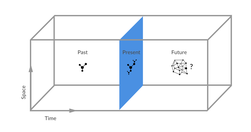
Blockchains and tokens provide two crucial puzzle pieces for .. the decentralized internet... Blockchains ... allow many different people to ... agree upon information without having to trust each other... Tokens, meanwhile, enable incentives across national and company lines... to create private economies around open platforms...
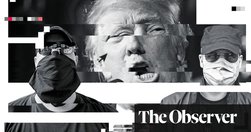
The rise of the right is better seen as an early skirmish in a much longer, and far more significant, technology-led restructuring of our politics and society... Crypto-anarchists are mostly computer-hacking, anti-state libertarians ... believe that digital technology, provided citizens are able to use encryption themselves, is the route to a stat…

blockchains today aren’t like the internet in 1996; they’re more like Linux in 1996... vastly more democratic, and more technically compelling, than ... internet of today. Similarly, open-source Linux was vastly more democratic, and more technically compelling, than the Microsoft and Apple OSes that ruled computing at the time. But nobody used it …
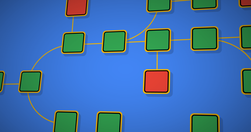
As IoT grows, the need for distributed computing becomes an absolute necessity... fog computing, distributed AI and parallel stream processing... both data and compute-intensive, and they don’t cope well with centralized infrastructure... A distributed network of computers managed by blockchain and smart contracts can create a shared economy wher…

Voters can either vote directly on issues, or they can delegate their voting power to delegates (i.e. representatives) who vote on their behalf. Delegation can be domain specific, which means that voters can delegate their voting power to different experts in different domains... If trust is broken ... the voter can simply revoke the delegation ..…
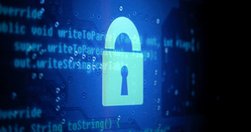
Government Chief Scientist, Sir Mark Walport, sets out how this technology could transform the delivery of public services and boost productivity... The report makes a number of recommendations which focus on ministerial leadership, research, standards and the need for proof of concept trials.
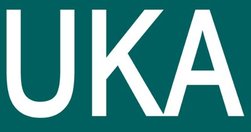
Blockchain... - is already being explored as a way of securely managing the distribution of government grants... a key role in the Government as a Platform programme to create "an ecosystem of interconnected components that departmental teams can use to assemble their services ... foster a new culture of trust”.
could pose a devastating threat to large tranches of the financial industry, and profoundly change the management of monetary policy... RSCoin would be a tool of state control, allowing the central bank to keep a tight grip on the money supply and respond to crises. It would erode the exorbitant privilege of commercial banks of creating money out …
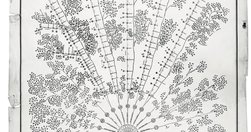
the future of work will rely on self-organization, enabled by collaborative software like Slack and Ethereum... Even in a self-organized, decentralized, collaborative, and high-trust future ... people will need to navigate their organization... Roles and projects will need to be created, filled, and disbanded with increasing frequency... we need …

To help developers quickly begin exploring the use of blockchain in the enterprise, IBM this week made several announcements to rapidly advance the use of distributed ledger technology across multiple industries. New blockchain services on IBM’s cloud platform, as well as plans to offer blockchain engagement centers (called Garages) in London, New…
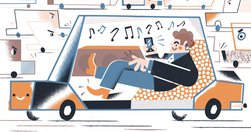
there’s no shortage of startups, projects, and developers trying to apply the blockchain concept to everything... because it gives the tech industry another bite at a long-coveted apple: decentralization. Is there a decentralization event-horizon beyond which platforms simply dissolve... Here are two instances of that dream... Ujo imagines an au…

the government’s chief scientific adviser, published ... Distributed Ledger Technology: Beyond Block Chain... official study that explores how the aforementioned technology “can revolutionise services, both in government and the private sector... the potential to help governments to collect taxes, deliver benefits, issue passports, record land reg…
Every insurance company’s core computer system is, at heart, a big, fat centralised transaction ledger and if the insurance industry does not begin to learn about, evaluate, build with and eventually embrace Blockchain technology, they will leave themselves naked and open to the next Uber, Netflix, AirBnB orwanna’ be Unicorn that comes along and …
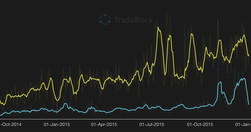
The fundamentals are broken ... It has failed because the community has failed... What was meant to be a new, decentralised form of money ... has become ,,, a system completely controlled by just a handful of people.
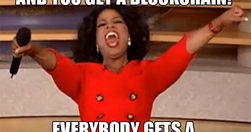
So if it’s not defined in the Bitcoin paper, what does “blockchain” actually mean? I’ve asked a lot of people this question, ranging from renowned cryptographers and distributed systems experts to Bitcoin enthusiasts to people not particularly versed in either Bitcoin, distributed systems, or cryptography. No two people have ever given me the same…

Just in time for your Christmas break, a hand-picked selection of posts designed to give you something to think about as the year turns.
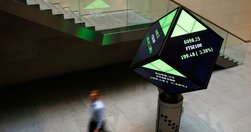
SEVERAL MAJOR COMPANIES from technology and financial ... IBM, Intel, Cisco, London Stock Exchange Group ... JP Morgan, Wells Fargo and State Street—have joined forces to create an alternative to the blockchain. Overseen by the not-for-profit Linux Foundation, this open source project aims to build blockchain-like technology ...for the business…

this couple will seal their union not before a priest or a judge, but on the almighty blockchain, a distributed global computing and data storage technology. BitNation... has established itself as the first virtual nation... has been building a set of tools and services that together may one day allow people to replace their national identity w…
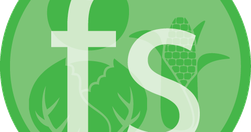
FarmShare is a decentralized platform for community-supported agriculture (CSA) organizations, using the blockchain to tokenize shares and enable community governance... enable communities to buy, sell and trade cryptographic tokens that can be exchanged for weekly deliveries of locally produced organic food... an evolution of the CSA model ...…
the competitive significance of business models turbocharged by machine learning is poised to surge... companies must have two types of people to unleash the potential of machine learning. "Quants" are schooled in its language and methods. "Translators" can bridge the disciplines of data, machine learning, and decision making by reframing the …

"in a world dominated by self-steering taxis, each ride becomes cheaper if the vehicles are autonomous rather than owned and run by major corporations... We can program it to ... make it the most moral, socially minded capitalist possible...it would not be self-aware... But they would be programmed to seek self-improvement in order to avoid bec…
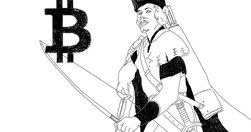
If the market can express more directly which content is in high demand, more of that content will be created. But there is missing a simple and convenient way for the consumer to value the everyday content they consume
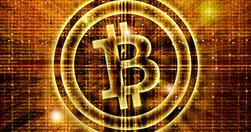
"UBS ... are the latest of a string of banks to take a shot at incubating for the blockchain.... Despite the title this article's mainly about bitcoin, although it ends with "The possibilities and potential for blockchain technology are extraordinary at every level of business and society. If you’re not keeping up then you should" - It's not a…